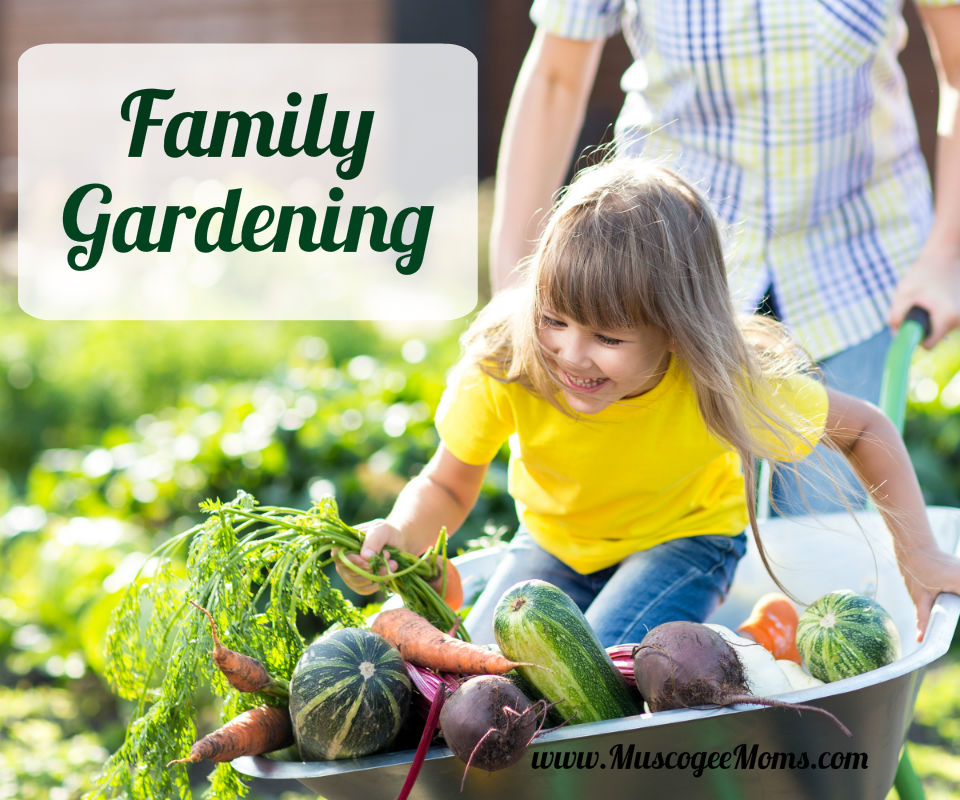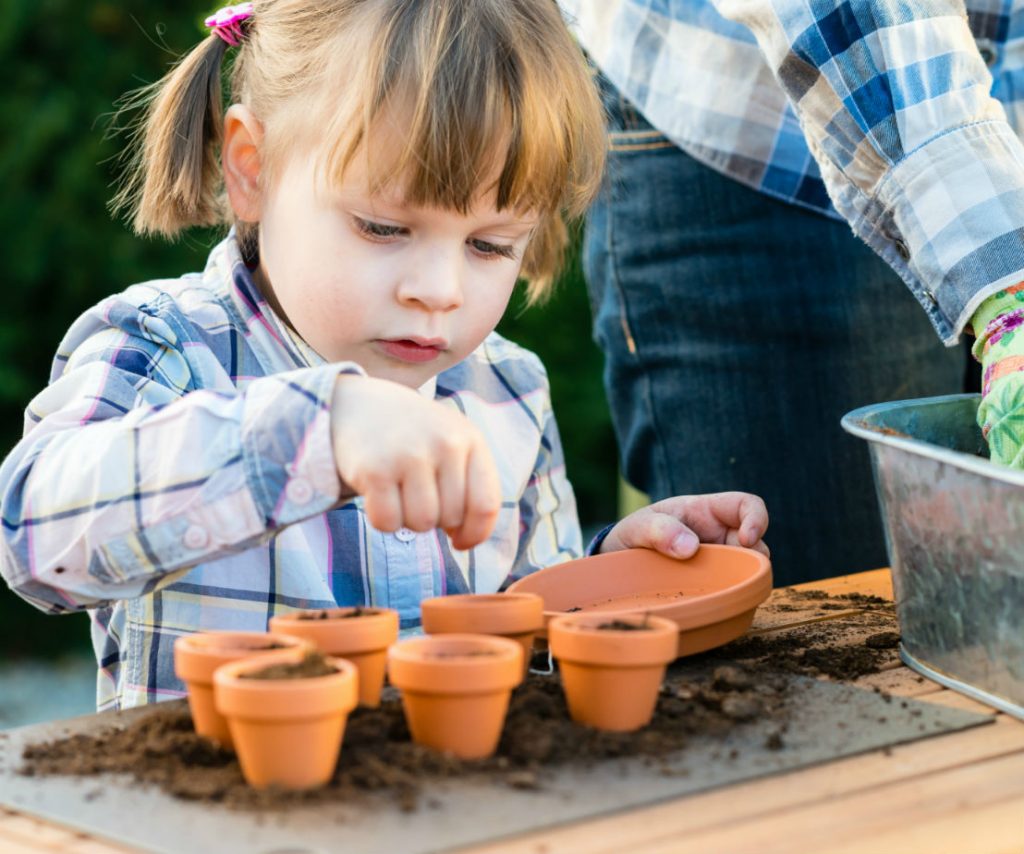By Peyton Hamby, ACES Extension Daily
March is the perfect time for planning a spring garden. Getting your kids involved in a family gardening project offers several benefits including life lessons, practical knowledge about vegetables and closer families.
Learn with family gardening
Children learn responsibility when the family plants a garden. They will have to water and check the plants like they would any other chore. It’s also important that they follow the project to its completion — planting, maintaining and harvesting the vegetables in the garden. Not only is this a great lesson, but it will give the child a sense of pride and accomplishment.
“When teaching children self-control or discipline skills, research shows that it is important to teach a child to wait for a reward,” said Melanie Allen, a regional family and child development agent with the Alabama Cooperative Extension System.
Increase self-esteem with family gardening
Youth gardening increases self-esteem, helps develop a sense of ownership, helps foster relationships with family, and increases parental involvement at school according to an article by J. Alexander and D. Hendren.
“One of the most important things students can learn from a gardening program is where their food comes from,” said Brenda Henson, coordinator of Alabama’s Junior Master Gardener program.
“Planting and maintaining a garden shows them that the vegetables they get at a grocery store do not just appear,” Henson added. It also teaches the basics of raising plants. Plants need good soil, fertilizer, water and sunlight. Parents also can help their children understand that different plants grow differently, depending on the time of year and the climate.
To accompany a child’s new knowledge of vegetables, kids who grow their own food are more likely to eat fresh, healthy fruits and vegetables, according to an article by the University of Colorado at Denver and Health Sciences Center. The article also says that it opens children up to lessons in nutrition and healthy eating.
Bring the family together with family gardening
Research shows that strong families have certain character traits. Allen said these traits include commitment, spending quality time together, working and having fun together, building traditions and communicating with each other. Family gardening implements each of the traits and strengthens family bonds.
One way to build family commitment is by creating and continuing family traditions, according to an article by H. Wallace Goddard. Having a garden every year would be a tradition children could look forward to in the spring.
“Letting children take part in decision-making says to them ‘You are important, and what you have to say counts’,” Goddard said. An easy way to incorporate children into the garden decision making is letting them request certain vegetables to include in the garden.
Activities for family gardening
Allen gave several examples of ways families can teach their children while still making gardening enjoyable. “Keep it simple and plan ahead. Make it a fun, hands-on science lesson,” Allen said.
- Make gardening a part of a regular routine. It helps children commit to the project. It also gives them something to look forward to every day.
- Use an egg carton to plant seeds in during January through March. While keeping them indoors, children can watch the seeds grow into seedlings and can then move them outside in spring.
- Plant three to six of the seedlings together because as they mature, some will die. Allen’s parents taught her an old saying. “Plant three seeds per hole. One for the crow, one to hoe and one to grow.”
- Get your children involved once the vegetables are ready to be picked. This lets them see what they’ve been working toward.
- Finally, sit around the table and eat the vegetables together. Children will love the fact their hard work paid off and they are able to enjoy the benefits.
Gardening is an easy and simple activity to get your child learning practical knowledge, while still having fun. The whole family will benefit from this educational experience. For any gardening questions, contact your county Extension office or the Alabama Master Gardener’s hotline toll-free at 1-877-252-GROW (4769).
Extension Daily is the official blog of the Alabama Cooperative Extension System (ACES). Reprinted with permission.




